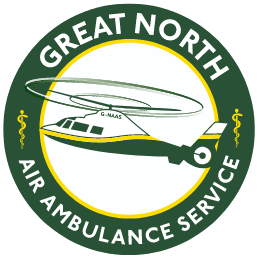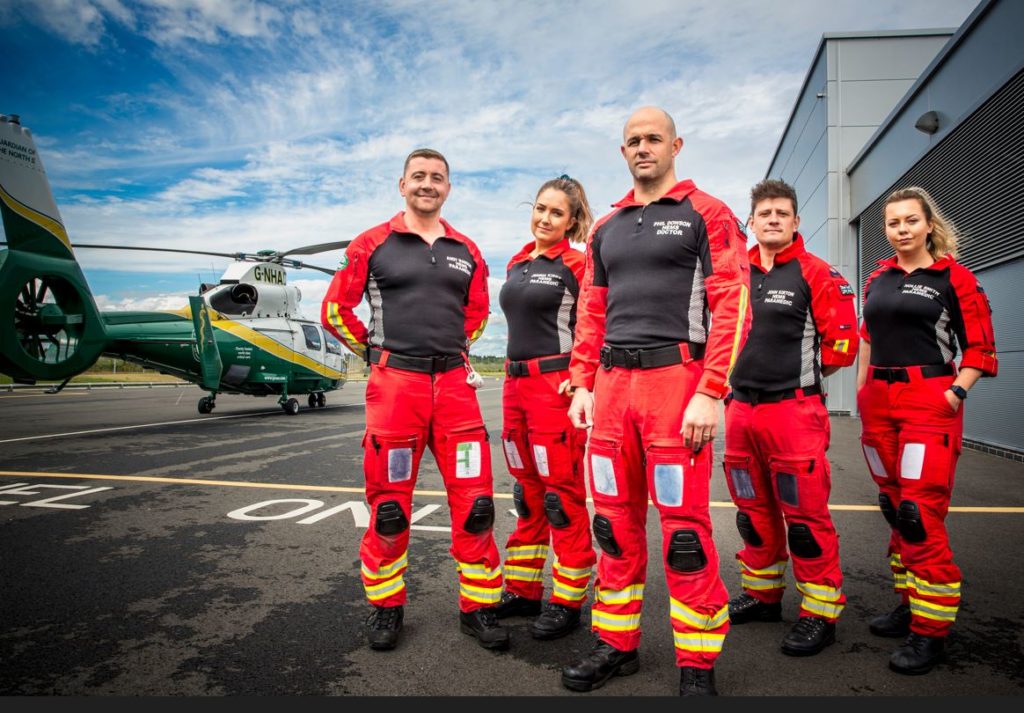“Paramedic Lee and Izzy the doctor were very professional, calm, and reassuring and they put me at ease.”
A fell walker who suffered a heart attack while attempting to complete the Wainwrights has thanked the Great North Air Ambulance Service (GNAAS) for helping to save his life.
Ian Wood, 48, from Cockermouth, had headed to Langstrath Valley on 27 November last year to continue his second round of walking the Wainwrights, which are 214 fells in the Lake District.
He said: “I’d gone up the front of Eagle Crag, which was quite a steep rocky climb and got to the summit and then I was going between Eagle Crag and Sergeant’s Crag when the heart attack happened.
“At the time I thought it was just indigestion, so I stopped and took some Rennies but that didn’t really help. I got to the top of Sergeant’s Crag and I took some paracetamol, which again, made no difference. At that point, I kind of knew I needed help.”
Ian had provided his wife Linda with the route he was taking and his timings, so he didn’t want to deviate too far from the path in case people had to come looking for him.
Unfortunately, he hadn’t seen anybody during his walk, and there was no phone signal, so he planned to try and get to the valley floor as quickly as possible.
He said: “I’d gone past all the crags, and then found a spot where I could start heading down. I couldn’t really walk anymore, so it was more crawling and sliding and rolling down the hillside until I could see the path.
“Luckily, I saw a couple walking along the bottom in the distance and I had a whistle and torch with me, so I managed to blow the whistle and flash the light at them, which got their attention.”
The couple climbed up to Ian to offer their help, before one of them ran down to Stonethwaite to call 999.
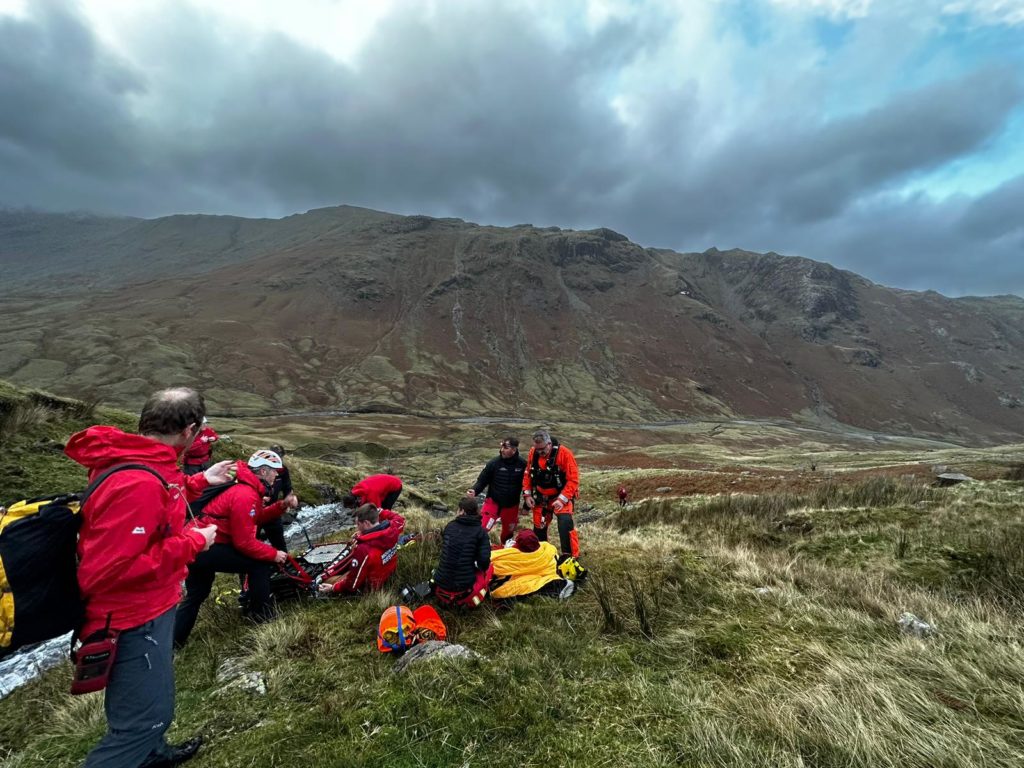

Keswick Mountain Rescue Team, GNAAS and the coastguard were tasked to the incident and arrived shortly afterwards.
Ian said: “I remember seeing the team from GNAAS scrambling up to me because they had landed on the other side of the river.
“They did an ECG and confirmed it was a heart attack and then they were planning the quickest way to get me to hospital.
“Paramedic Lee and Izzy the doctor were very professional, calm, and reassuring and they put me at ease. They gave me aspirin and GTN spray straight away, but nothing really altered the pain. I think I was too far gone by then, but I felt I was going to be alright, because help was there.
“While the mountain rescue team were discussing how long it would take to get me to the helicopter, the coastguard appeared up above me.
“They put me in a sling and winched me up, then 25 minutes later I was in Blackpool.”
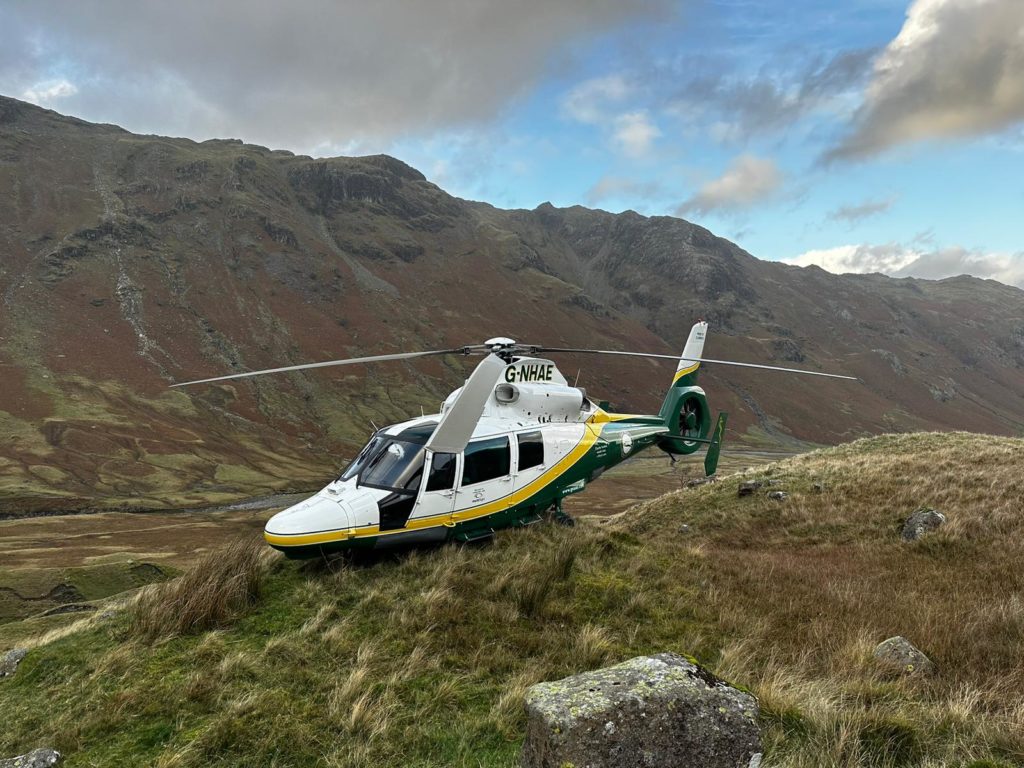

Ian had a blockage in his left anterior descending artery so he had a stent fitted, and was put on a drip for 48 hours to break up a blood clot.
He remained in hospital for five days and is now undergoing rehabilitation to help with his recovery.
He said: “I’m doing quite a bit of rehab to build my strength back up, but whether I’ll get back in the fells again I don’t know. It’s just getting used to my new limits.”
Since the incident Ian’s wife has raised more than £1,000 for GNAAS from a walking challenge and has also signed up to do the Great North Run.
The couple recently visited GNAAS’ base in Langwathby, Penrith with their children to thank paramedic Lee Salmon for his help.
Ian said: “It was good meeting Lee. I think it’s important for him to see that after I got winched off, I’m doing okay and it’s nice for me to see them and say thank you.”
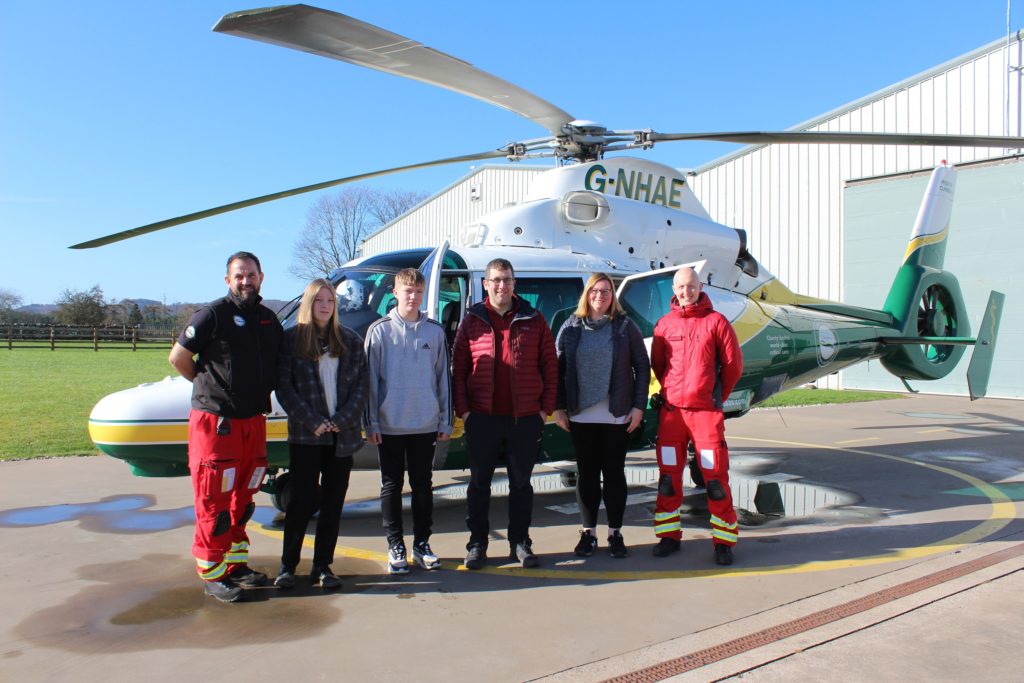

Lee, who is head of operations West at our charity, said: “It is a real pleasure to meet Ian again, I feared how his heart attack might affect him and it was good to hear that his heart surgery came promptly and as a result of a collaboration between several organisations.
“Keswick Mountain Rescue Team, having the forethought to launch the coastguard, their professionalism and swift rescue of a medically unwell casualty and then the transfer of the patient to the PPCI centre at Blackpool for the surgery that will now help Ian lead a relatively normal life after he recovers.
“All those elements play an equally important part in the complex rescue and treatment of a heart attack in a remote location such as the beautiful Lakeland fells. To see Ian’s wife and young children and make them a coffee is lovely. It makes my job and the impact we at GNAAS have seem so important.”

